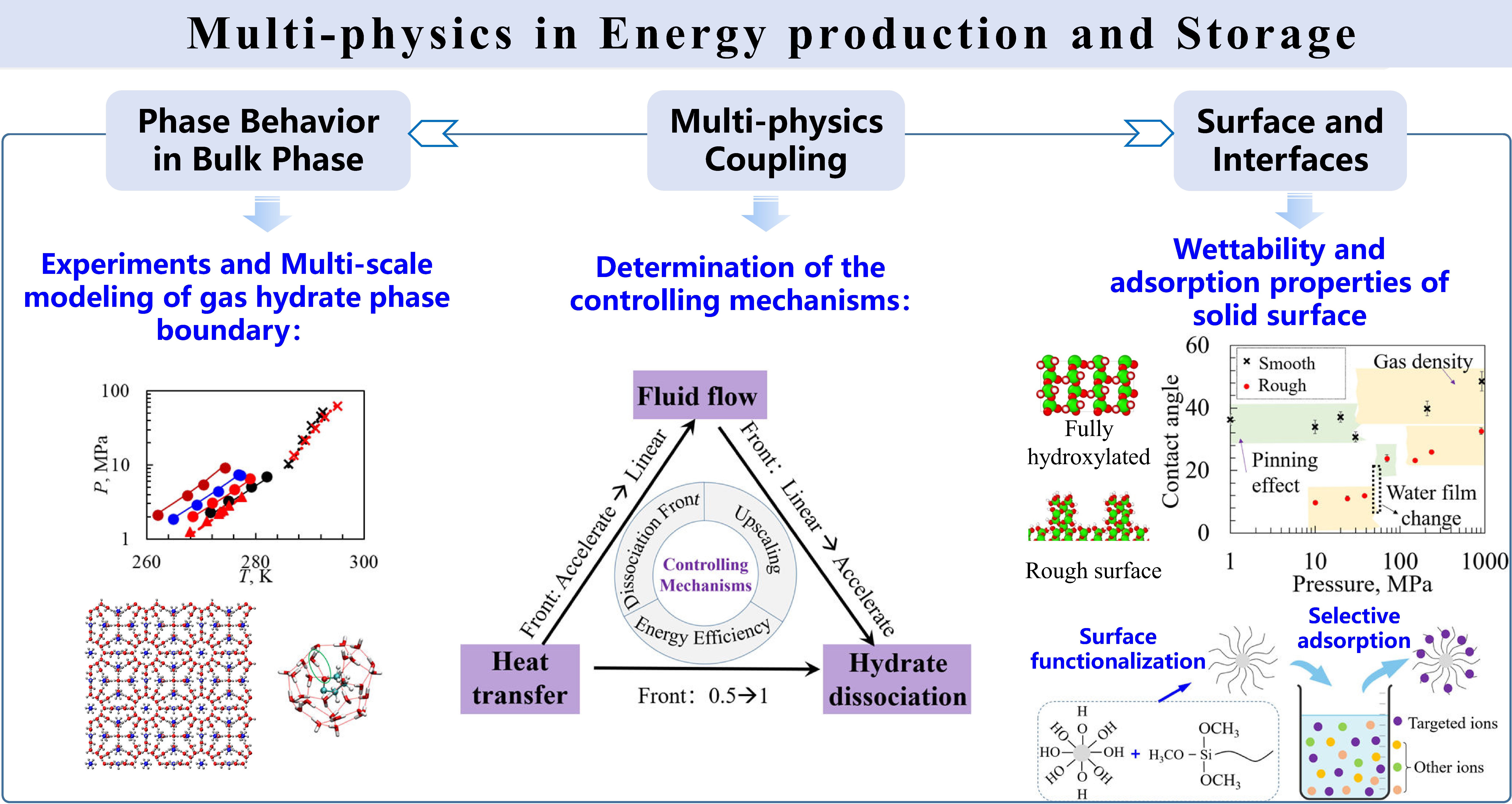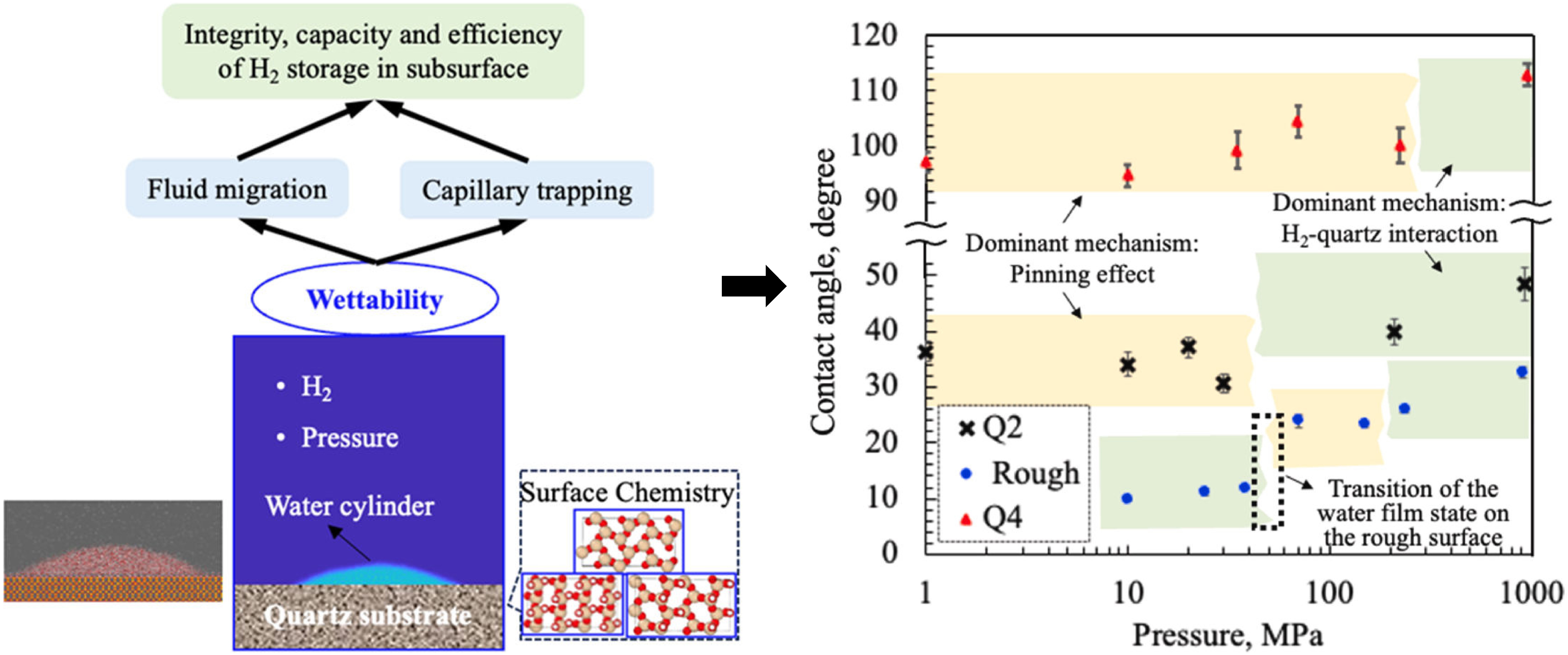Ruyi Zheng



Production of energy resources in the underground reservoirs involves multiple mechanisms, e.g., kinetics of hydrate dissociation, heat transfer, fluid flow, and other aspects. The key to improve energy production performance lies in selecting appropriate development strategies based on different reservoir conditions. Therefore, it is essential to have a clear understanding of the controling mechanisms and characterization characteristics of different geological conditions and development processes. Our group used reservoir numerical simulation, experiment, thermodynamic modeling, and molecular dynamics simulation methods to conduct research at multiple scales, including gas hydrate phase behavior, movement of dissociation front, controling mechanisms under different reservoir conditions and production methods, determination of the controling mechanisms, and upscaling of reservoir development based on similarity theory. This provides a basis for feasibility analysis and optimization of development plans for oil and gas fields and natural gas hydrate reservoirs.

Hydrogen is an efficient and green energy storage medium that can balance the difference between energy supply and demand and promote the wider use of renewable energy. Our group is committed to studying geologic hydrogen storage and hydrate-based hydrogen storage technology.
Underground salt caverns, abandoned oil and gas fields, etc. provide natural storage space for large-scale storage of hydrogen. However, hydrogen molecules have small size and strong mobility, which poses a risk of leakage during geological storage. In addition, chemical reactions between hydrogen and reservoir fluids and minerals may exacerbate the risk of leakage and reduce the purity of hydrogen. To address these issues, the research team used molecular dynamics simulation and field numerical simulation to systematically study the impact of gas-liquid-solid interactions on the efficiency and safety of hydrogen storage under geological hydrogen storage conditions.

Compared with geological hydrogen storage, material-based hydrogen storage technology has the advantage of flexibility. The lattice structure of gas hydrate can capture hydrogen molecules, allowing hydrogen to exist stably in the form of hydrogen hydrate. The application of hydrate-based hydrogen storage technology requires only water and a small amount of promoter, and the water and promoter can be recycled, so it has more economic and environmental advantages than other hydrogen storage materials. The generation of pure hydrogen hydrate requires harsh conditions of high pressure and low temperature, and the addition of promoter can greatly alleviate the required generation conditions. However, the addition of promoter will reduce the storage capacity of hydrogen. In response to the above problems, the research group used PVT reactor experiments, thermodynamic modeling, and molecular dynamics simulations to systematically study the storage performance of different promoters on hydrogen hydrate.

The progress of renewable energy and hydrogen economy rely on key metals such as platinum, palladium, nickel, cobalt, copper, manganese, and iron, which are widely used in materials such as catalysts and batteries. The efficient extraction and separation of these metals is an inherent requirement for the development of a low-carbon economy. Our team used micron-sized silica particles as a substrate, immobilized different functional group ligands on the surface of silica particles, and achieved selective extraction of different metal ions by adjusting the pH and other conditions of the separation solution, taking advantage of the advantages of solid-liquid separation, to achieve the goal of metal ion separation.

Gadikota, G., Zheng, R., Ochonma, P., Yin, T., Mohammed, S., Asgar, H., Patel, D., Lu, P (2023). Recovery of energy critical high value metals using functionalized materials. In filing (Appl NO. PCT/US2023/078640).
Our group has openings for undergraduate and graduate students, and postdoctoral researchers with backgrounds in engineering, chemistry, physics, material, or related fields. Our research endeavors encompass various aspects, including numerical simulation, thermodynamic modeling, mathematical modeling, molecular dynamic simulation, and experimental techniques. We welcome individuals with a strong sense of self-motivation and initiative.